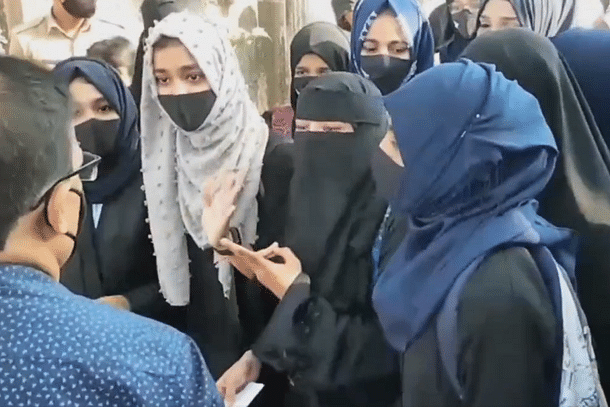
Hijab not essential practice of Islam, Karnataka govt tells HC

Wearing the hijab is not an essential religious practice of Islam and preventing it does not violate the constitutional guarantee of religious freedom, the Karnataka government told the state high court on Friday, defending the ban on headscarves in classrooms.
“We have taken a stand that wearing the hijab is not an essential religious part of Islam,” Advocate General of Karnataka, Prabhuling Navadgi told the court of Chief Justice Ritu Raj Awasthi, Justice JM Khazi and Justice Krishna M Dixit.
The AG said that there was nothing unlawful about the February 5 order which banned clothes “which disturb equality, integrity and public order” which came following protests and counter-protests after some Muslim girls were not allowed inside thier college for wearing hijab.
“There is no issue of hijab in the government order. The government order is innocuous in nature. It does not affect the petitioners’ rights,” he said, adding that colleges can decide if they want to allow the hijab in the classroom.
“Conscious stand of the state is that we do not want to intervene in religious matter. We could have said the hijab was against secularism and order and could have said it is not permissible. We have not. It is a stated stand of the state, we did not want to intervene,” he said.
However, he admitted that the part of the order prescribing clothes “in consonance with unity and equality” could have been worded better.
“Here the draftsman went a bit enthusiastic. What was meant was, in case no uniform is prescribed, please wear decent clothes. I agree it could have been worded better,” he said.
The Advocate General refuted some Muslim students’ charge that the Karnataka government’s February 5 order banning headscarves violated Article 25 of the Constitution.
Article 25 gives freedom of conscience and free profession, practice and propagation of religion to the citizens of India.
The government order also does not violate Article 19(1)(a) of the Constitution which guarantees to all its citizens the right to freedom of speech and expression, Navadgi argued.
A ban on wearing hijab had come into force after six students of Government PU College, Udupi, were not allowed to wear hijab to college, triggering a widespread protest across the state.
The High Court, in an interim order while hearing petitions related to the issue, barred students from wearing hijab, saffron scarves, or any religious clothing in classes.

